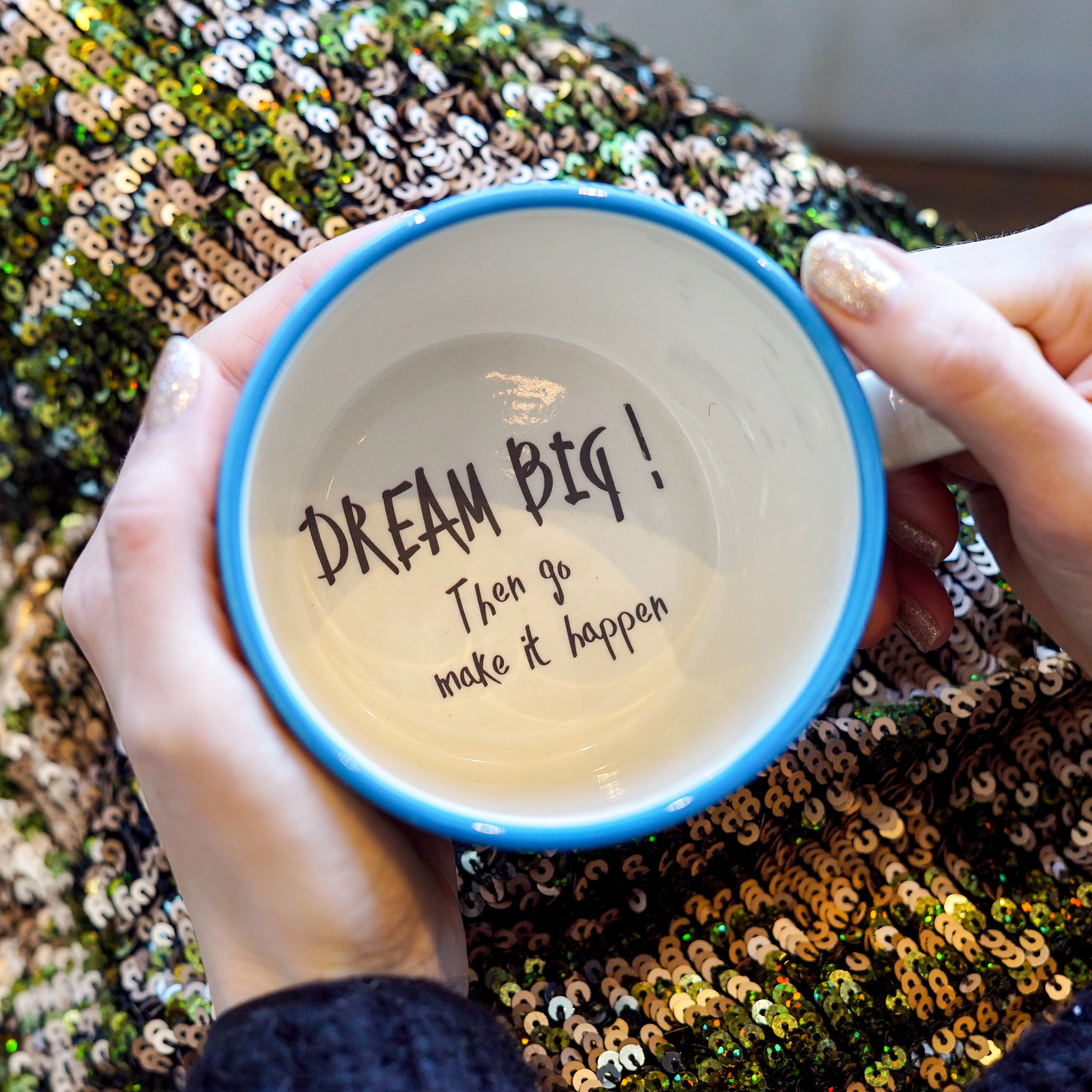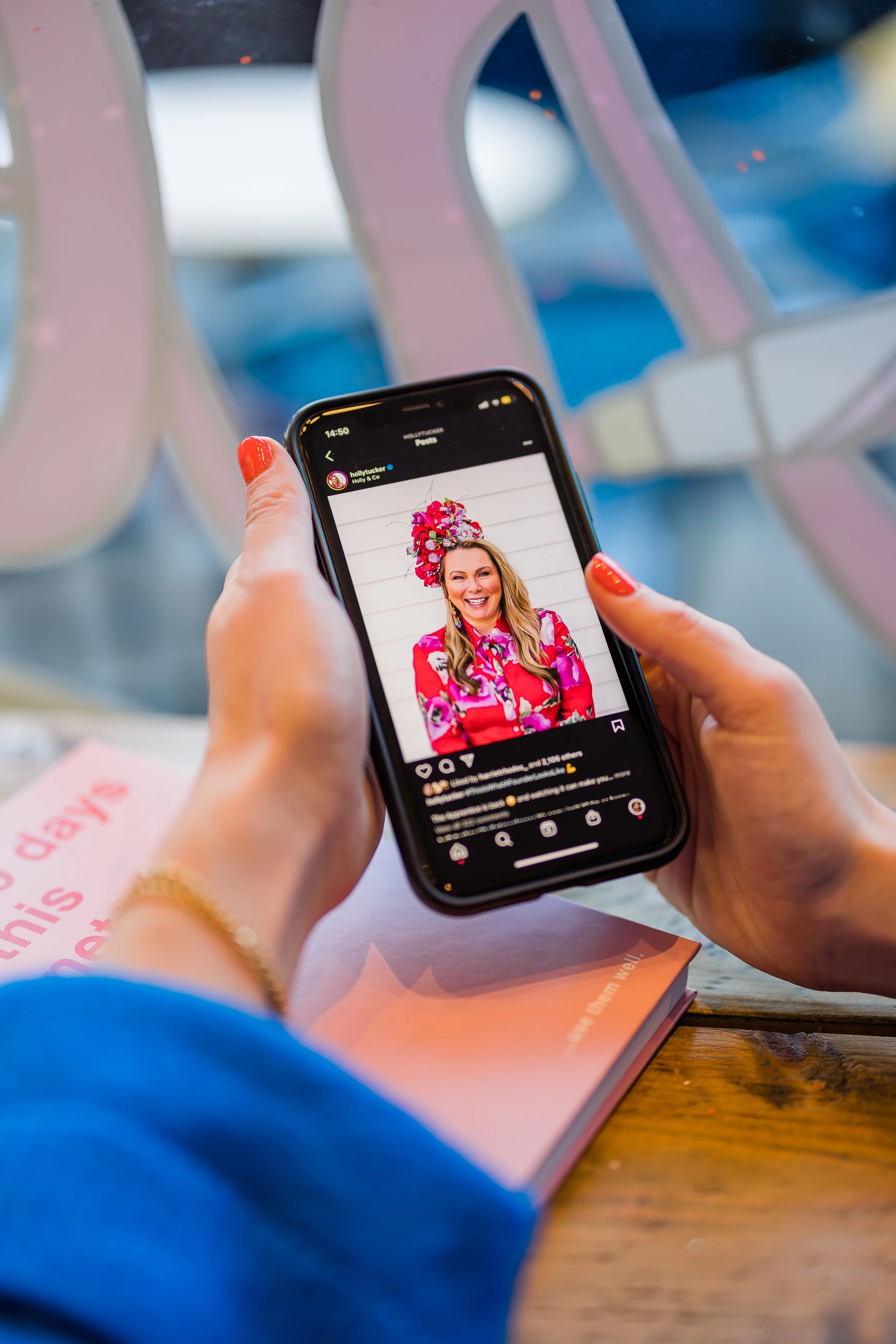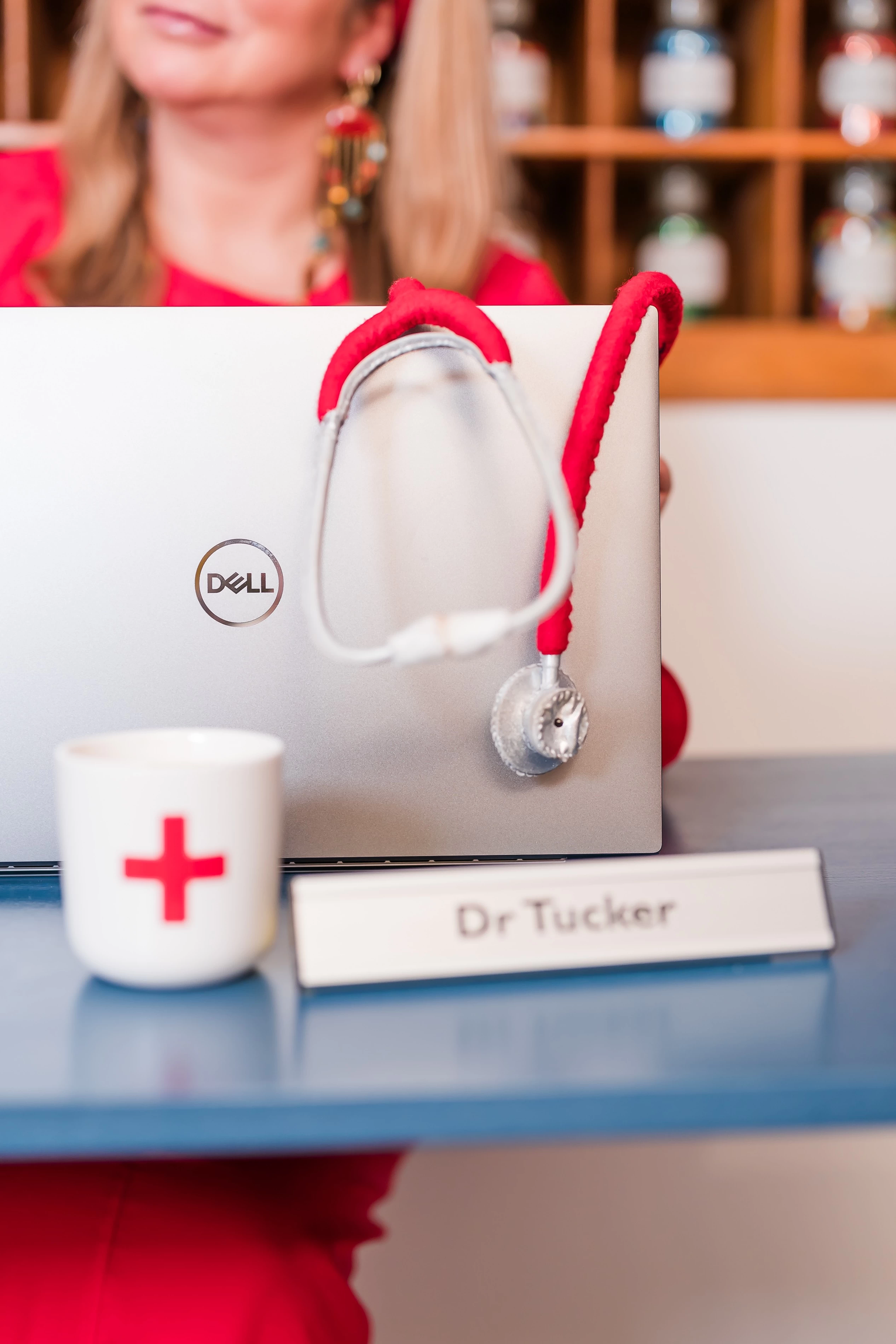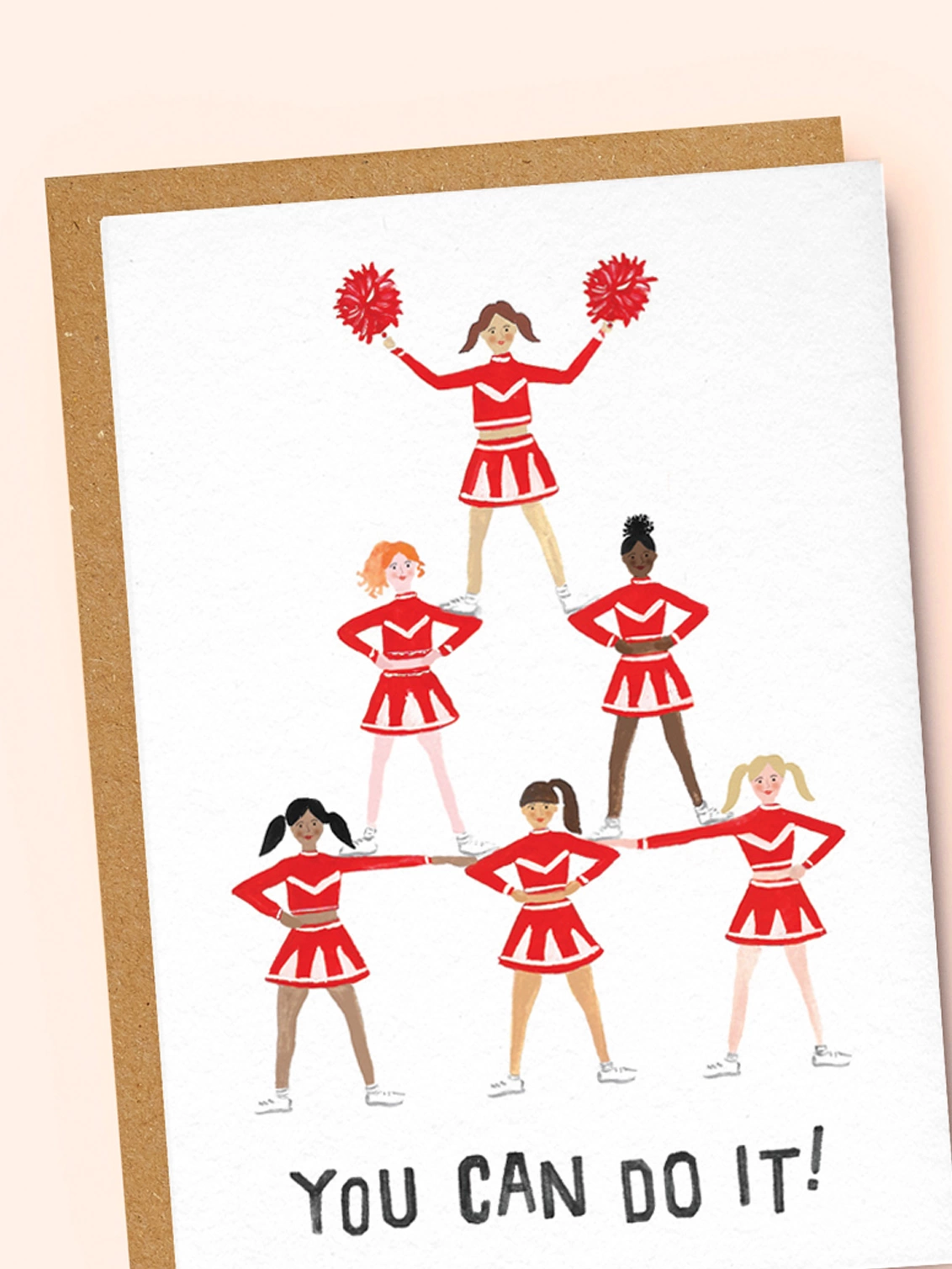
The 5 pieces of equipment you (really) need when starting a small business
UPDATED 26TH SEPTEMBER 2023
Choosing the kit you need when money is tight and you’re not sure what to buy is never easy. It pays to speak to someone who has been there and done it…
Which kit should you buy if you’ve just launched a small business?
So you’ve found your diamond and what you love to do in life and you’re ready to take the leap into running a small business — go you! This is the most exciting part of your journey as a founder, but you’ll find it’s also one of the most overwhelming times, as there are lots of decisions to make in these early stages. One of the first of these is exactly what equipment you need to get your business up and running — and it’s an important one, if you want to spend your budget wisely.
There’s an abundance of information out there (which is brilliant, but we know from speaking to founders that it can sometimes cause ‘information overload’). So how do you cut through the noise to avoid spending more than you need on unnecessary items? Take a deep breath and dive into our beginner’s guide on the five pieces of kit we think you should consider (then make yourself a big cup of tea and remember that amazing things are coming your way…).
1. What do all small businesses need? A phone with a good camera
Creating strong product imagery is a common worry for small business owners, but there’s no need to overcomplicate things or spend a lot of money (at least to begin with) on getting that perfect shot. Most smartphones nowadays have cameras that will take high quality photos in various formats (in fact, there are all sorts of brilliant features to be found, that you probably didn’t even know existed), so save yourself some extra cash in your early months and see what you can do with what you already have in the palm of your hand (or pocket).
If you’re due (or overdue) an upgrade, prioritise a brilliant camera with plenty of storage on your next device. That’s really all you need to get snapping (along with a sprinkle of creativity to come up with beautiful flatlays and backdrops for your perfect shot). If you’re stuck for inspiration, there are plenty of people out there giving away free tips and ideas on how to take photos on an iPhone on social media (Instagram and TikTok often have lots of video tutorials in this area).
2. A tripod — a useful tool for anyone who needs to take product pictures or film content
Ok so here is something else that is worth investing in at an early stage, and that’s a tripod fit for all those brilliant photos you’ll be taking. They are pretty inexpensive if you do your research, plus they open up a whole new realm of content that you can create to help market your business. Think beautiful videos of you making your products, well-framed photographs and even things like time lapses if they suit your brand, as the tripod helps keep the camera steady.
With customers consuming more and more video content by the day, a tripod will help you capture high quality content for all the Reels (and, brace yourself, maybe even TikToks) you might be creating to help sell your products and services. Or at the very least, they are brilliant for all those ‘face to camera’ moments you might need to do on Instagram Stories, or even to help connect with people through your website or emails.


3. Most founders need a reliable laptop
This is probably the most important piece of kit you’ll own, aside from the tools you need to actually make your creations. From building your website, to uploading products, or even just responding to emails, if you're using a laptop rather than a desktop, then it's likely to be a vital extension of your business and so you need to make sure it’s fit for the job. There is nothing more frustrating than having to wait minutes for files to load or open, especially as time really is of the essence when you’re running a small business.
Now laptops aren’t for everyone. If you really are purely studio or home / office-based, you might prefer a desktop (read our article on laptops versus desktops). But if you prefer the flexibility of a mobile computer, which many founders do, you need to find the right one for you.
We’re very proud to be partnered with Dell Technologies, who we happen to think are a brilliant choice. Not only are they industry-leading and well-reviewed, but they are huge small business champions.
If you’re not sure where to start, we’re big fans of the Latitude 9330 laptops at Holly & Co HQ. For all you service-led small business owners reading this, Dell laptops are also brilliant for virtual meetings, as they feature a super slick camera, brilliant sound and an in-built microphone (so no need for an additional headset).
The other main benefit is that they are built around those working in creative roles so Macs really aren’t the only option. The XPS and Precision products are specifically equipped with tech that helps accelerate your creative apps, for example, and offer benefits like professional level graphics, colour accuracy and AI that learns the way you like to work then provides relevant shortcuts, so it’s worth looking into those too.
4. All small businesses need a decent printer
Ah, printers… we so often get off on the wrong foot with them, don’t we? Sadly, a necessary evil when running a small business, as they are the solution for printing every order slip and invoice you’ll need to include in product packages most days. Plus, it’s incredibly handy to have a printer within arm’s reach for all those moments where you need marketing materials printed quickly. We couldn’t live without ours.
It’s a bit of a minefield out there when it comes to which model and specification is right for you but, you guessed it, luckily those brilliant folks at Dell Technologies can help in this area too (plus you can earn Dell Rewards points if you shop through their website, which helps towards extra money off on other products — win win). Our advice is to speak to your small business friends who have similar needs to yours too, as personal recommendations are often a great help in finding the right one for you.
5. You might need a thermal label printer, too
Our last consideration isn’t for everyone, but if you’re a product-based business that aims to fulfil many tens (or even hundreds) of packages a day, this might just save you time, money and even sanity. Thermal label printers are a brilliant extension to your standard printer, as they don’t require ink (instead they use a clever paper that reacts to the heat of the printer) and they can print many hundreds of labels in one go, direct from your chosen fulfilment service (such as Royal Mail). It’s a more sustainable way to package your products, as you have no need for sticky tape to attach the label, and you won’t find yourself running through lots of expensive ink cartridges either.
Make sure to do your research though (and ask your small business friends again for their advice), as there are several models out there. You need to ensure that the one you choose is compatible with both your computer and the labels that your chosen fulfilment provider generates.
If you found this article helpful, we have even more advice for this crucial stage of your business journey, which aims to set you on the right path to success. Check out our ‘Starting A Business’ category for top tips and tricks from our founder Holly Tucker, and other small business founders who have walked this path before. Most importantly, good luck.
Kit needed for starting a business: key takeaways…
There are five key pieces of kit that anyone starting a small business is likely to need. These are:
- A phone with a good camera
- A tripod
- A reliable laptop
- A decent printer
- A thermal label printer
Remember, you can always contact a Dell Small Business Tech Advisor with any questions you might have on 0800 085 4878 (it’s free!) or use their online chat service, and they’ll point you in the right direction (or find out more about them).
Related Content
MORE ARTICLES ON FINANCE, LEGAL & TECH

How to grow your business with steady sales and make your income last year round

What is a financial feminist? And why is finance a feminist act?

Laptops vs desktops: which are better for small businesses?

How do I protect my designs from being copied?

4 tech secrets every small business needs to know

Is your tech sustainable? 5 points for small businesses to consider

5 tips on choosing the right computer for your small business

7 cyber security tips on how to protect your business from hacking
Be the first to know
Sign up to our emails for brand new small business gift and homeware ideas, as well as the latest creative inspiration, delivered straight to your inbox.

